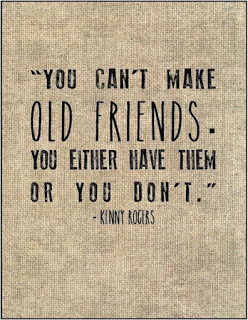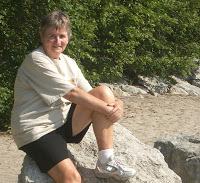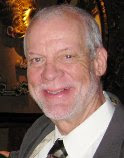All through school it was the four of us. We took classes together, sat together on the bus to and from school and on field trips, ate lunch and played tennis together. Then, in our teens, circumstances began to separate us. Molly’s family needed her to go to work, so she left school at sixteen – perfectly legal in Britain then and now, and not looked on as something completely negative as it is here. The other three of us stayed on till eighteen, when Rose started working and Sarah and I went off to different universities. So in one sense there ended our togetherness; in another sense it did not. The four of us always got together for a picnic, or drinks at the pub, whenever Sarah and I were home for Xmas or summer vacation. Then, after we graduated, Sarah married and she and her husband emigrated to Australia. Shortly after that, I came to the U.S.
Now we were well and truly separated.
But we were not. Each of us continued faithfully to write nice long letters. It was always with great delight that I spotted a gift from afar in the form of an envelope with a Brit or Aussie stamp on it, lying in the basket beneath the mail slot, just as it now delights me to see one of their names languishing in my e-mail inbox. We remembered each other’s birthdays and faithfully sent Xmas cards, as we still do, although I have to admit they have become somewhat predictable. The two from Britain are almost always of those cute little English robins. The one from Australia is inevitably some summer-Santa scene, perhaps a surfing or sailing Santa, to remind those of us in the Northern Hemisphere that an Australian Xmas comes along at the height of summer. I saw Rose and Molly relatively often over the years as we got together whenever I returned home, but have only managed to see Sarah twice in the fifty years since we both left. Once in the seventies we managed to coordinate our trips home to see our parents, and in the eighties I visited her in Sydney.
The four of us have always been there, albeit long-distance, for each other through triumph and tragedy. I know I can rely on those gifts from afar, the heartfelt congratulations or sympathy, whatever happens, and they feel the same. It began when Rose, at eighteen, became pregnant. She was unmarried and her father threw her out of the house. The other three of us immediately rallied round. Pretty soon her father relented and welcomed her back, and although we liked to think our support for Rose made him relent, I doubt that it really carried any weight with him at all. Very few weeks later, as it was done in those days, Rose and the father of her baby married and have lived happily together, as far as the other three of us know, for over 50 years. They operate their farm in such an environmentally-friendly way that environmentalists from all over the world visit them. Recently they were honored for their efforts at a tea-party at Buckingham Palace. More cards and letters!
Molly married, but found that she could never have children. Cards and caring letters flew across the miles. Two years ago she had a mastectomy, and although she made light of it we sent the sympathy cards and encouraging letters.
I came out to my distant friends and was rewarded with loving, supportive, replies by return of mail. I had debated the importance of telling them, we shared so little, in fact nothing, of each other’s daily lives by then, but I felt that our close friendship deserved better; I was right. They have not had the chance to meet Betsy, but always include a cheery love to Betsy as they end their correspondence, and upon receipt of our wedding movie in 2013 the loving congratulations were immediate and sincere.
Poor Sarah and her husband have had the saddest stories to tell. They had two children, both boys. One fell down some steps in his teens and broke his neck. There was apparently a suspicion of substance abuse; he had always been a troubled kid. Then, a year ago, the older son died, in his forties, after a long struggle with leukemia. The cards and letters flew across the miles once more. I was dumbfounded by the strength of my grief. How could I feel so much for someone I had seen twice in the last fifty years? Fortunately for Sarah and Noel, their beloved son left them with two grandchildren and a daughter-in-law with whom they are very close. Life goes on.
I am invariably proud of my friends. Not proud of myself for choosing so wisely. The four of us were friends less from choice than as a result of geography. No, I am proud of them for who they are. In their strength and wisdom and caring, they never disappoint.
We have little in common, the four of us. You don’t have to have anything in common with people you’ve known all your life; you’ve got your whole life in common. Lionel Blue says,
“Old friends die on you, and they’re irreplaceable. You become dependent,” and I do so dread the day the first one of the four of us dies.
On being told that Facebook is a great way to keep in touch with old friends, Betty White quipped,
“.. At my age, if I wanted to keep in touch with old friends, I’d need a Ouija board”
Both Rose and Sarah have mothers still in good health well into their nineties, so I doubt, thankfully, that I will be the one left holding the board.
© May 2015
About the Author
I was born and raised in England. After graduation from college there, I moved to the U.S. and, having discovered Colorado, never left. I have lived in the Denver-Boulder area since 1965, working for 30 years at IBM. I married, raised four stepchildren, then got divorced after finally, in my forties, accepting myself as a lesbian. I have now been with my wonderful partner Betsy for 25 years.


